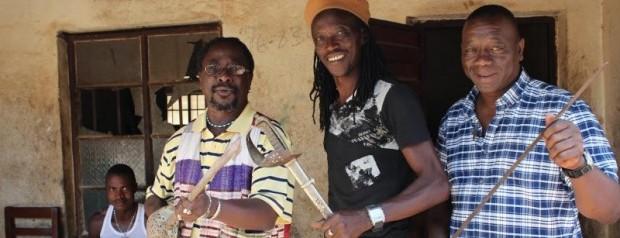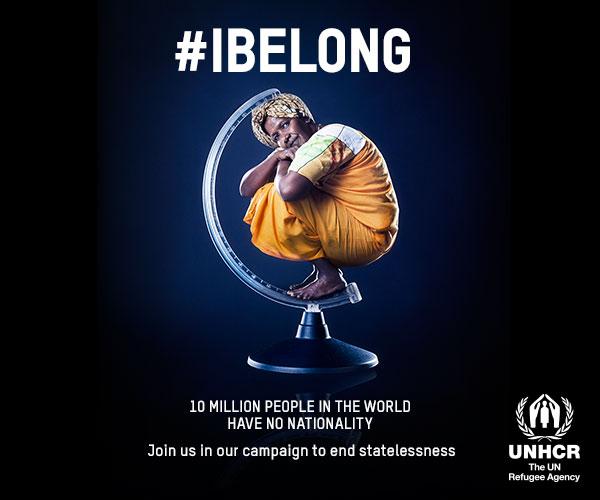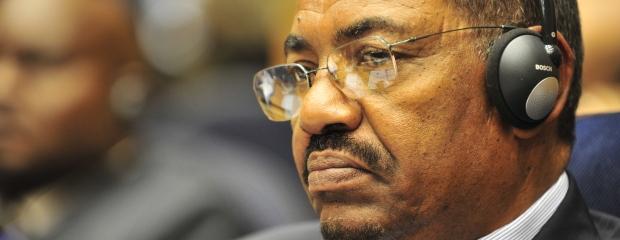The Nubian Predicament: A Story about Colonial Legacy, Discrimination, and Statelessness.

Young Nubian men in Kibera, Nairobi
The year was 1923, and Sebi Rajab had worked for the King’s African Rifles””the British colonial army””since the end of the war. It wasn’t exactly what he had hoped to do with his life, but the British policy of forced conscription meant that people like Sebi had no choice.
Life by the Nuba Mountains””in present-day central Sudan””had certainly not been lush, but it had provided a sense of stability and belonging: it was a cultural and historical home difficult to leave behind. The British had made it very clear, however, that even once he was discharged, Sebi could not return to the mountains. Instead, he was expected to relocate to Kibera””a new Nubian home created by the colonialists on the outskirts of Nairobi, in what is today Kenya.
When the war ended that was where Sebi went, following the promise of fertile land and enough space for a large family. Little did Sebi know that his predicament would develop into a multi-generational struggle against poverty and exclusion.
In 1931, Nubians in Kibera asked to be repatriated to Sudan, a request which was repeated in 1939 and 1950, and consistently refused. So Nubians remain in Kibera””and in villages and towns across Kenya””to this day. Many are now fifth or sixth generation, and have no ties to Sudan””which didn’t even exist as a country when their ancestors were forced to leave. Indeed, according to a recent survey, more than 99 percent of Nubians in Kenya identify themselves as Kenyan. But the government thinks otherwise.
How did this happen?
In 1964, a month after Kenyan independence, Sebi’s daughter, Asha, gave birth to her second child, a boy named Jafar. According to Kenya’s constitution, Asha and her first-born child, Hawa, should have been recognized as citizens, as both were born in Kenya before independence (Former Constitution of Kenya, Art. 87). Since Jafar was born after independence, his right to Kenyan nationality depended entirely on his parents’ status as Kenyan citizens (Former Constitution of Kenya, Art. 89). But Asha and her husband were both Nubians, and the prevailing attitude among the new Kenyan leaders was that Nubians were foreigners. Despite their constitutional rights, in practice Nubians were denied Kenyan citizenship. Nubians, who previously were British Protected Persons, became stateless.
And so the story goes. Jafar and Hawa grew up. They had children who became stateless. And then their grandchildren inherited the same quagmire.
Eventually, the Kenyan government agreed that some Nubians do have a potential claim to nationality. But not on the same conditions as other Kenyans. Local committees were set up in the 1990s to vet Nubians who claimed to be Kenyan. These vetting committees would often ask for a whole range of documents to establish a person’s status, such as grandparents’ birth certificates””which other Kenyans were not required to provide. Many Nubians were unable to meet these arbitrary demands, as the documents were either lost over the years or never received in the first place.
As a result, thousands of Nubians today live in a legal limbo, with no access to the rights that are afforded to Kenyan citizens, such as freedom of movement and diplomatic protection, or the benefits of health care and employment in the public sector.
Even Nubians who have managed to obtain identification find their citizenship questioned when they need to renew documents, and so live in a perpetual state of uncertainty.
A Nubian man who received a national ID card in the 1950s recently lost it. He told us a story about how he had visited the local police station seven times over the last several years but was unable to replace the lost card because suddenly his Kenyan nationality was questioned.
“Lack of an identity card has negatively affected me on numerous occasions,” he said. “I cannot vote, especially in a referendum that was done on November 21, 2005. This happened despite the fact that I have been patriotic enough to vote in all previous general elections.”
Another Nubian man told us this story:
“My cousin is from the Eastleigh neighbourhood of Nairobi. She was trying to get an ID card and she went to the registration office there…But they told her ‘You are a Nubian, you can’t get an ID card here.’ She went back twice, once with her local councillor and once with her MP, but they told her that Nubians could only get ID cards at Kibera…But when she came here, she had to bring three other Nubians to the office with her to testify that they knew her. She did this last year, and even now she still doesn’t have an ID.”
Ironically, Kibera””which comes from the word kibra in the Nubi language and means “land of the forest” “”has now become one of Africa’s largest urban slums. It is a place where poverty and disease, crime and social exclusion are overwhelmingly present.
While a majority of Nubians were initially settled in Kibera, today only 50 percent of the community live there. The rest mostly reside in so-called Nubian villages across Kenya. However, these villages are generally also very poor. Unemployment is a particularly big problem, with less than 30 percent of adult Nubians reporting that they are employed. Indeed, 12 percent of households report that they have no income at all. An additional 40 percent of households make less than 60 USD per month, which averages to far less than 1 USD per person per day.
A Nubian resident of Kibera recently put it this way: “We have no roads in Kibera, only one clinic run by the Germans, no police station and no proper drainage system. We have no electricity. We also have water supply for two days in a week. Kibera is the worst part of Nairobi. We are treated as third class citizens because everything is diverted to other places. We have been facing this problem for a long time because we have nobody in government to fight for our cause.”
*Sebastian Kí¶hn is program coordinator for equality and citizenship, Open Society Justice Initiative.
This posting also appeared at http://blog.soros.org/2010/09/the-nubian-predicament/






